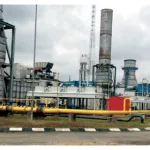The Nigeria Labour Congress (NLC) and thirty other unions have initiated an indefinite nationwide strike, citing the Federal Government’s refusal to raise the minimum wage from N60,000.
The strike, set to commence at midnight on Sunday, June 2, 2024, follows a series of unsuccessful negotiations between the government and the labour unions.
Join our WhatsApp ChannelUnions Shut Down Workplaces
Various unions have closed their workplaces to comply with the directive from the NLC and the Trade Union Congress (TUC). Joe Ajaero, President of the NLC, stated, “We are left with no option but to embark on this strike as the government has failed to meet our demands.”
In a joint statement, Ajaero and TUC President, Festus Osifo, expressed their disappointment. “The government’s refusal to pass a new National Minimum Wage Act and reverse the electricity tariff hike to N65/kWh leaves us no choice but to strike,” Osifo explained.
Failed Negotiations
Negotiations between the labour unions and the government collapsed on Sunday. The government’s final offer was an increase from N57,000 to N60,000, which the unions rejected. On their part, the unions had reduced their demand from N497,000 to N494,000, but this too did not yield a resolution.
Academic Staff Union Joins Strike
The Academic Staff Union of Universities (ASUU) has instructed its members to join the strike. Emmanuel Osodeke, ASUU President, stated, “The NLC’s strike action is a result of the government’s failure to renegotiate the minimum wage and reverse the electricity tariff hike.”
READ ALSO: Just In: ASSU Threatens Nationwide Strike Over Government’s Inaction
Aviation Unions Withdraw Services
On Sunday, aviation unions, including the National Union of Air Transport Employees and the Air Transport Services Senior Staff Association of Nigeria, directed their members to withdraw services at all Nigerian airports starting from midnight on June 3, 2024. “All services at Nigerian airports will be fully withdrawn till further notice,” the unions announced.
Full List of Participating Unions
The unions participating in the strike include:
- Academic Staff Union of Universities
- Maritime Workers’ Union of Nigeria
- National Union of Electricity Employees
- National Union of Banks, Insurance and Financial Institutions Employees
- Judiciary Staff Union of Nigeria
- Joint Union Action Committee
- Nigeria Union of Teachers
- National Association of Nigeria Nurses and Midwives
- Joint Health Sector Unions
- Amalgamated Union of Public Corporation, Civil Service Technical and Recreational Services Employees
- National Union of Civil Engineering, Construction, Furniture and Wood Workers
- Medical and Health Workers Union of Nigeria
- National Union of Petroleum and Natural Gas Workers
- Nigeria Union of Railway Workers
- Nigeria Civil Service Union
- Association of Nigeria Aviation Professionals
- Academic Staff Union of Colleges of Agriculture
- Senior Staff Association of Nigerian Universities
- Senior Staff Association of Statutory Corporations and Government-Owned Companies
- Petroleum and Natural Gas Senior Staff Association of Nigeria
- Nigerian Union of Journalists
- Senior Staff Association of Nigeria Polytechnic
- National Union of Food, Beverage and Tobacco Employees
- Nigeria Union of Local Government Employees
- Iron and Steel Senior Staff Association of Nigeria
- National Union of Air Transport Employees
- Air Transport Services Senior Staff Association of Nigeria
- National Association of Aircraft Pilots and Engineers
- National Union of Postal and Telecommunication Employees
- Parliamentary Staff Association of Nigeria
- Senior Staff Association of Universities, Teaching Hospitals, Research Institutes and Associated Institutions
Nationwide Impact
The strike has led to the shutdown of various sectors across the country, including education, health, aviation, and public services. Banks, hospitals, schools, and government offices have been affected, causing widespread disruptions.
Ajaero emphasised, “Our struggle is for the welfare of Nigerian workers. We urge the government to address our demands promptly to end the strike.”
As the strike progresses, the nation awaits further developments and potential negotiations that could bring an end to the industrial action.
Emmanuel Ochayi is a journalist. He is a graduate of the University of Lagos, School of first choice and the nations pride. Emmanuel is keen on exploring writing angles in different areas, including Business, climate change, politics, Education, and others.


















Follow Us